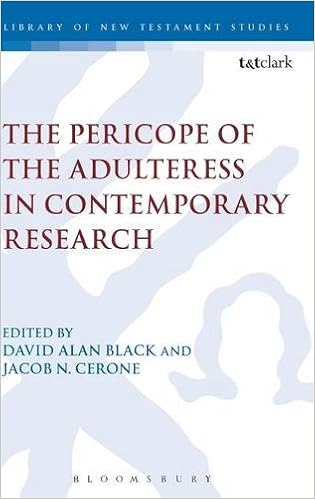 I have often struggled with the idea of owning a gun as a means to protect self, home, and wife. The concept of self-defense is a given in today’s secular and Christian culture. We, as Americans and as Christians, are taught that we have certain inalienable rights. One of those includes the right to protect self, home, and possessions. This right to self-defense, or self-protection, extends even to the point of executing an assailant. Once again, this presupposition of mine has been challenged. The following is a must read (but beware, lengthy) quote from Karl Barth on Matthew 5:38-42:
I have often struggled with the idea of owning a gun as a means to protect self, home, and wife. The concept of self-defense is a given in today’s secular and Christian culture. We, as Americans and as Christians, are taught that we have certain inalienable rights. One of those includes the right to protect self, home, and possessions. This right to self-defense, or self-protection, extends even to the point of executing an assailant. Once again, this presupposition of mine has been challenged. The following is a must read (but beware, lengthy) quote from Karl Barth on Matthew 5:38-42:
On further consideration, it is not so ‘natural’ as it appears that even in respect of one’s own life force should be met by force, agression by aggression, disorder by disorder. To hit back when I am struck is a very dubious defense against the danger in which my assailant has brought me. My life is not actually helped by my doing this, whether physically or spiritually. Strictly speaking, does not the real emergency arise when I enter the cycle and become an aggressor in turn? We may consider the process in its simplest form. An unfriendly word is spoken to me by another. I feel that I may and should respond to his unfriendliness in terms at least as unfriendly. I do so. Yet I cannot conceal the fact that in so doing I do not find the pleasure I desired but only succeed in making myself disagreeable. On a realistic view, what I achieve in this self-defense does not uplift but degrades even myself. I ought thus to be restrained even by the necessary protection of my own life.
We have also to consider, however, the life of the assailant. In the fact that he thinks he should attack me, whether in word only or more seriously, he shows that he for his part believes that he is in some serious need. He may be wrong so far as I am concerned. That is to say, he may have no good reasons for venting on me his illhumour, sorrow, loneliness, disappointment or want, and especially for doing it in such a way that I am exposed to danger by his more or less serious attack. Yet I do not put myself in the right in relation to him by hitting back and therefore adding to the distress in which he thinks he finds himself. For all I know, the distress which has caused his highly irregular attack upon me may be much greater, or may weigh on him much more heavily, than that which he has inflicted on me by his attack. For all I know, my resistance, however justifiable, may increase his distress. I may thus provoke him to greater injustices, and thus plunge him into even greater distress, making things worse for him instead of better. By my defensive action, I shall certainly do something similar or even worse to him than he does to me by his act of agression. The New Testament is surely right in treating both the attacked and the attacker on the same level as all blatant transgressors of the command, and in setting the attacker on the same level as the beggar or borrower, who in his own way is also an attacker but to whom the attacked is still under an obligation. It is surely closer to life than all the assertions of the right of self-defense so easily adduced as self-evident. Surely the more important thing is that we should constantly ask ourselves whether it is really fitting to close the fatal cycle with an act of self-defense, or whether the need which is already at work in the attacker, and which he threatens to inflict, or has already inflicted, on the attacked, cannot be met along different lines from those of retaliation. Ought we not at least to postpone, to put in second place, all the considerations which might finally lead us to the resolve to meet force with force?
If all this is true, and in any sensible discussion the command of God according to the Gospel will surely be taken into account, then it is obvious that the question of killing the attacker as the ‘ultima ratio’ of what is called self-defense can arise only on the extreme margin. Is it not a most serious matter if I not only meet invective with invective, or blow with blow, or an attack upon my possessions or those of others with a most powerful counter-attack, but reply to a threat on my own life or that of others by forestalling the attacker and putting him to death? Do I really prevent the danger to my life or that of others by killing the aggressor And what do I do to him in making this final venture, in extinguishing his life with my own hand, in removing him ‘from the land of the living,’ as though he belonged to me and I were his judge?
Schlatter’s reasoning (Christliche Ethik, 1914, p. 133) has a reassuring solidity: ‘Since he who seeks to destroy the life of another forfeits his own, he who kills the attacker in defense of life, whether his own or that of another, acts in the service of the justice of God as the executor of the punishment ordained by Him according to the same rule by which society would put the murderer to death if he were successful in carrying out his will.’ On certain presuppositions this may well be true of a necessary and right action of this nature. But as a general and binding direction it is an astonishing over-simplification from the pen of a New Testament scholar like Schlatter.
Have we not first to mention that the command of God does not initially point us in this direction, that it does not give us any authority over the life of the wrong-doer, that it does not make us his criminal judge? How can the voice of Christian ethics assert itself in this sphere if it does not dare, without establishing any absolute law, to make plain the true order of the enquiry in which self-defense and killing in self-defense cannot possibly the first word but only the tenth at the very earliest? I certainly can and should wish to be protected in the possession and enjoyment of my goods, honor, freedom and finally and especially body and life, but not in all circumstances or with all means, since none of these possessions constitutes a supreme good with an absolute right to be maintained. The killing of the assaliant is a final and most terrible means of protecting this possessions. Does their preservations really demand this? For in the last analysis, I cannot even know the need which drove him to snatch at my goods and therefore to attack me. And to defend myself I must range myself alongside him under the dubious slogan of self-protection, and finally under the even more dubious claim that it must be either he or I, under which he already stands as my assailant. Furthermore I have in fact to kill the killer before he actually becomes a killer, so that he is only responsible for the the will to do it whereas I must bear responsibility for the actual deed. If I do what is ultimately envisaged in cases of so-called self-defense, I must always give consideration to these restraining factors.
-Karl Barth
Church Dogmatics,
The Doctrine of Creation III.4, pp. 430-42.
Agree with Barth on this one or not, I hope that it forces you to re-evaluate the inbred attitude of self rights. As Christians we are called to deny self, in all forms. Jesus’ ethic is not easy. If our first move is to jump through hermeneutical hoops to lessen the forcefulness of Jesus’ teaching in Matthew 5:38-42 (and elsewhere) before it truly sinks in and penetrates our hearts, minds, and souls, then are we able to honestly say that we have been faithful to the text of Scripture, the words of God?








